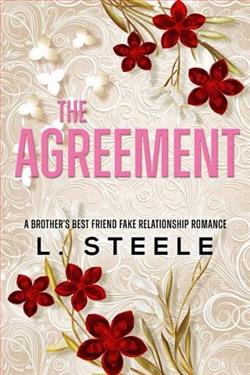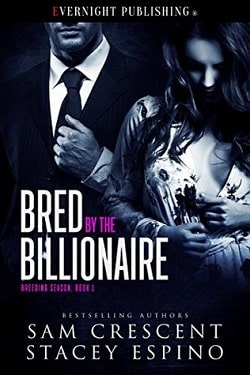Page 53 of South of Nowhere
And, of course, every one of Fort Pleasant’s problems would be over the minute the levee failed and Hinowah became the drain, diverting the water from the Never Summer and relieving any risk whatsoever to the county seat.
Shaw was now joined by Tolifson and Starr.
“Who the heck was behind it?” Tolifson asked. “Terrorists? I heard they’re looking for soft targets. Like infrastructure grids. Taking out a town from flooding would be a real plum of a statement.”
Colter remained skeptical. Incidents of terror, foreign or domestic, were extremely rare.
He knew in the years Dorion’s company had been responding to incidents, only one was declared a terrorist attack—a bombing in Pittsburgh that targeted an LGBTQ rally and set fire to a whole block of row houses. Two others—a derailment and a brush fire—might have been terror related but the authorities never found out definitively.
Drowning Hinowah to make a political point?
Ten percent at best.
There was a knock on the door and Tolifson let a middle-aged man inside. Introductions were made. Arthur Simmons, around fifty, was nondescript, with dark skin and a short, trimmed Afro. He carried a bee transport container. He set it on the desk.
“Mayor Tolifson says you’re in a bind, the levee and all. Well, I’m happy to help you, sir, but I will not have any of my creatures injured, if that’s what might occur.”
“They’ll be fine,” Colter said. “In fact, they’re going to get a treat.”
This drew curious glances from Starr and Tolifson.
Another knock on the door. Dorion was let inside, carrying a bottle of clear liquid. It was simple syrup—sugar and water. Tolifson had called the owner of a bar in town and arranged for her to get a bottle. The establishment was closed but he’d left the back door open.
Colter picked up the tray the coffee maker sat on. Setting aside the appliance and wiping the surface, he placed the tray on the table. He then drew his Glock, giving the beekeeper momentary pause, then ejected a round and replaced the gun in its holster. Withdrawing a multi-tool and pair of pliers from his backpack, he worked the slug out. He dumped the gunpowder grains on the tray, spread them out and poured a circle around them with the simple syrup.
“Okay…” Tolifson muttered uncertainly.
Colter nodded to the beekeeper, who opened the lid and turned it on its side and tapped the insects out. It didn’t take long before they sensed the syrup and flew to it.
He glanced briefly at the confused faces—everyone except Dorion, who knew exactly what he was up to. It was she who explained. “Our father taught us hundreds of survival techniques. Some involved ways to detect food, water, severity of wounds.”
Colter added, “There are dog breeds that will sit beside a badly wounded person who has a chance of survival, but walk past one who can’t recover. Canines can sniff out explosives, everybody knows. Pigs are better. They’re used in conflict zones to find land mines.”
“That’s a sure way to get some bacon for breakfast,” Tolifson offered.
No one smiled.
Colter continued, “But mammals need a long period of training. Bees?” He nodded toward the insects at the sweet liquid. “Their proboscis is as sensitive as a dog’s nose, and it only takes five minutes to teach them.”
Simmons laughed in surprise.
Tolifson said, “Well, darn. Gunpowder and syrup. You’re conditioning them to find bombs!”
Then the beekeeper caught the implication of the training session. He looked stricken. “You mean, somebody sabotaged the levee?”
“That’s what we’re going to find out.”
“Why would a soul want to do that?”
Starr said, “We don’t know. But I can see his plan unfolding. Whoever it is hears there’s a bad storm coming, and knows about snowmelt. Figures the river’s going to flood. He hikes to the river side of the levee while the water’s low and plants the explosive charges. Then he just waits for the flood. And bang.”
Tolifson asked, “Then why didn’t anybody hear it?”
Starr shrugged. “The storm. Maybe they’d think it was thunder. And the devices were under tons of dirt.”
They watched the insects’ long tongues sucking up the syrup. Honey would be their first choice, but sugar worked as well. Colter knew they would go for it, even if they weren’t hungry. What they didn’t eat they would direct to their second stomach, a storage container, in effect, to take back to the hive.
For five minutes, the humans in the room made phone calls or watched the news. Then Colter announced, “Training day’s over.” He lifted the tray and the startled bees flew off, spreading across the room. Taking care to make sure none of his consultants escaped, Colter opened the door and set the tray outside.















